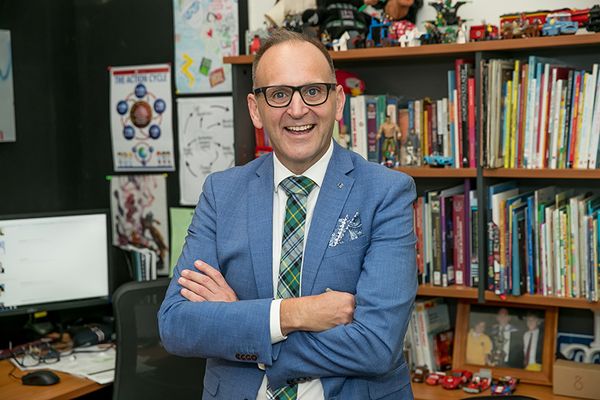Creating compassionate adults
There is much reference in media, including social media, to the rise of bullying behaviour, its causes, and its consequences. We’re sure it is very topical in carpark and birthday party conversations amongst parents.
I once heard this comment from a colleague: "When you drop your child off at school, you can expect to pick your child up in 'at least' as good a condition as when you dropped him or her off".
We acknowledge that things can go wrong, children make mistakes, and where there is a child that is struggling and is repeatedly making mistakes, more rigorous intervention is required. We want to ensure you that 'what we know about, we deal with'. Some issues are more complex than others, as repeated incidents usually involve families that associate more closely together, either in co-curricular activities or socially. Solving issues between children can be as complex as in adult relationships. I always say that where strategies have mixed results with adults, with all their life experience, how much more involved it can be with children, who don’t have the same life experience and understanding yet. We completely understand parents being emotional about their child's wellbeing. We would expect no less. A child being hurt either physically or through bad manners upsets us too.
Discussions about unhelpful behaviour are important. We certainly don't want to restrict parents from talking. We dearly love parents talking to each other, in fact, we depend on it. The challenge for us is to work hard so that parents have good news to talk about. Our only request is that talking about it is most beneficial when it is also discussed with the people who can in fact do something about it.
We want our students to live Truth, Compassion and Wisdom.
I would encourage you to have a discussion with your young people at home regarding:
- What does compassion look like?
- What does compassion sound like?
- What does compassion feel like?
Working together is our greatest strength. Supporting each other in helping our young people grow and develop into healthy adults is the privilege that we have.
It is important that we don't get drawn into always looking negatively at young people growing and developing. We have all 'been there' and we have all developed into the adults that we are. Our success has been primarily based on positive and charismatic role models and supportive environments. Below are some strategies to reflect on, drawn from our experiences in leading schools and young people.
Providing a model of appropriate behaviour
- Young people are very observant. If you act in the way that you want your young person to, they learn just from watching.
- Provide a good example in the way you deal with other people – express your feelings, resolve conflicts, and solve problems.
- While each child has an individual temperament or personality, home and early education environments have a strong influence on children. Adults and peers provide a role model for social and emotional skill development.
- Young people who do not see positive examples of joining in, sharing, compromising, solving problems, and dealing with conflict may have difficulty getting on with other children. They may be more vulnerable to being involved in bullying.
Having reasonable expectations
- Many challenging behaviours and bad manners are a part of development. They also provide you a chance to teach appropriate behaviour.
- Young people need a clear idea of what behaviour you expect. Telling someone they need to 'be good' is too vague.
We are intentional about having a caring community. Our Guidelines for Mutual Respect are our agreed contract for how we deal with conflict. Let’s live it and teach it so that our students believe it.
We know how precious and important your child is to you. Our commitment is to work with you in ensuring their ongoing physical, social and emotional safety.
CAMPUS WORKS UPDATE
Work continues around the P&F Oval. The earthworks are now largely complete, along with the majority of in-ground infrastructure. A building contractor has now been appointed to take the projects through to completion. The successful contractor is FDC Construction & Fitout. FDC will mobilise onsite this week, with new hoarding and signage to appear on campus in the coming weeks.
